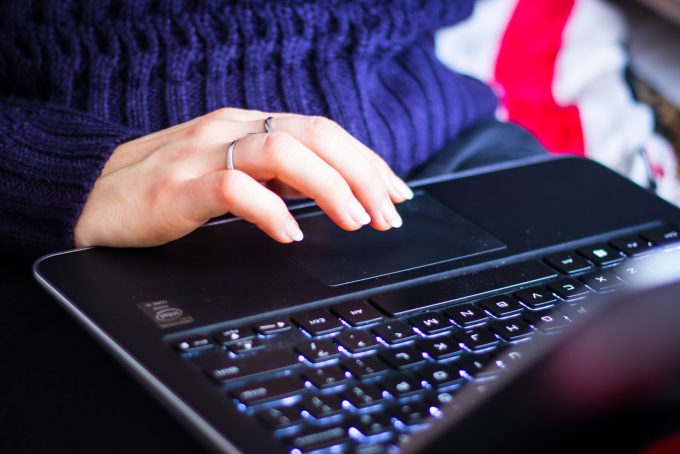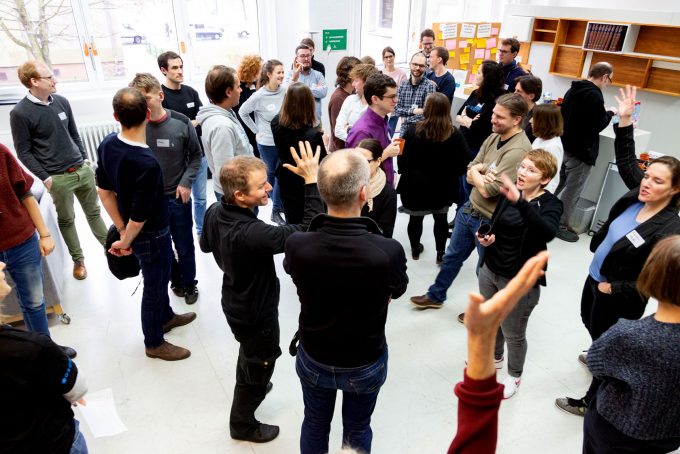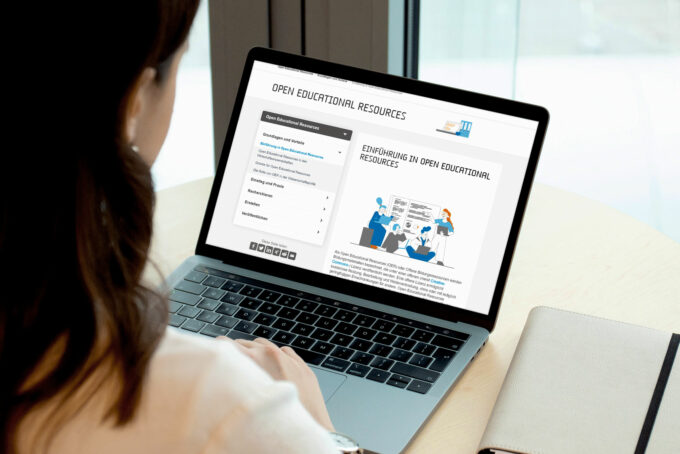
Open Science: Grassroots Initiative from Students for Students at the University of Amsterdam
Open Science grassroots initiatives are immensely important for open practices to finally take hold in the scientific ecosystem. Ideally, students come into contact with this right at the beginning of their studies. This is exactly what happens with the student initiative SIOS at the University of Amsterdam, which we present in today's interview.
The Student Initiative for Open Science (SIOS) at the University of Amsterdam was initiated and is still run by students. The grassroots movement wants to introduce students as early as possible, voluntarily and sometimes playfully, to the sometimes quite abstract subject area of open practices and thus make university life easier for students. Good academic practice should be learned and internalised as early as possible, is the motto.
Marla Dressel and Franziska Nippold from SIOS presented the project at the Open Science Conference this year. Now we have spoken with them and asked them about their motivation, because there are no credit points for the commitment. In the interview, they also tell us how their university environment reacted to the grassroots initiative and how academic libraries can support them. At the end, there are starting points and links for anyone who would like to establish a similar movement at her/his university.
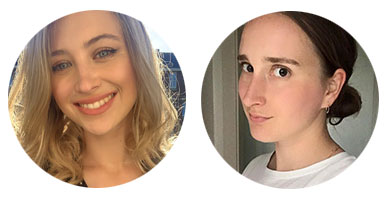
An Interview with Marla Dressel and Franziska Nippold
Your grassroots initiative is very interesting as it targets Open Science education for students at the University of Amsterdam. What was your motivation?
A course called “Good research practices” at our Psychology master’s programme was an important motivating factor. The course teaches students how to conduct reliable science and discusses current research practices. Fellow students of ours found it quite disappointing that they learned Open Science only during their master’s degree and many programmes do not offer such courses at all. Besides, most Open Science initiatives mainly target PhDs, post-docs, and professors while not adapting resources and materials to students’ needs.
They felt that students were being overlooked in the Open Science movement.
We think that this could be fatal because students are the researchers of tomorrow.
This is why SIOS ( Student Initiative for Open Science) was born. We wanted to involve students in the movement and to provide them with open education on Open Science.
We are Data Sharing. We are Open Access.
We are Reproducibility.
We are Open Science, from students for students.
What are your activities?
Our event team organises a broad range of activities. We host lectures on Open Science topics (e.g., the difference between exploratory vs confirmatory research, Bayesian statistics, pre-registered reports), workshops to provide students with practical tools (e.g., how to pre-register your thesis, version control with GitHub, power analysis, JASP), and more fun activities to get students together, such as Open Science movie nights, pub quizzes, or discussion panels. We also have a communication team at SIOS that is pretty active on social media, especially on Twitter, but also on Instagram and on Facebook. Here, we spread our events and resources with other students, scholars, universities and everyone else, who is interested. At the same time, we attend conferences and write grant applications. We also provide materials and resources to students on our website and our Slack Channel. Here, students can also ask questions and debate current issues. Besides the purely educational part, we are currently running a study on research practices among students.
How did your environment (e.g. profs, lecturers …) react to it?
We have received immense support from our study coordinators, profs and lecturers. Many of them have offered to give lectures themselves and help us share our endeavours. For us, it is extremely rewarding to see the resonance in the community but at the same time we also know that we are lucky that our university is very method-conscious and that it may be different at universities outside the Netherlands. More importantly, students find our events helpful, and we receive a lot of positive feedback from them.
Are any of your activities part of the university curriculum, so that students get credits for them? Would that even be a goal for you?
Besides the course we talked about before (Good research practices), students can get credit points for visiting our lectures. That is at least a start and so our goals are more focused on spreading our message and helping to set up other SIOS’s at different universities. However, we just heard from a newly founded SIOS that they will definitely focus on integrating Open Science in their curriculum because they do not even have a course on good research practices there. We hope that someday every research student can have access to Open Science materials if he:she wish to.
How do you ensure that your efforts and projects are sustainable and long-lasting?
An easy answer would be that we currently digitise all our projects (thanks, COVID!). That means, we record all our lectures and we provide our whole range of resources for free on our website and social media. We also created a step-by-step guide to create an own initiative for Open Science and we pitch this guide at other universities. At the same time, we really think about what students need. That is why, most of our lectures are very introductory.
We think that this is a general problem in the Open Science movement – that everyone who does not know so much about it yet will have problems organising all the information and debates that are currently going on.
That is why often PhD students and other-level researchers are visiting our lectures – we offer comprehensive bunches of information.
We also believe that it is best to start as early as possible to teach students Open Science practices. Take pre-registrations, for example: If you already do this for your very first research project, the bachelor thesis in most cases, it will become normal for students to follow these practices. In this way, you are teaching students and building awareness as early as possible to integrate Open Science practices in the long run.
How can academic libraries support initiatives like yours?
We think that there is a lot that can be done. The most important step is to help us share our endeavours. That can be on social media and on your website. Libraries could also always ask us for collaboration and especially now it is easier to just organise workshops together online. Libraries can also ask their students to create their own SIOS. And more generally, they can provide all kinds of resources themselves and participate in our Slack Channel.
Do you have any tips for other students who want to start such an initiative? (How) Can they get any support from you?
We have actually created a step-by-step guide to create your own SIOS. These are just guidelines of course, not necessarily a rulebook. We think that creating a SIOS is not super easy but that you can get a lot of support if you ask for it. That can be asking us at SIOS Amsterdam (we will always find time for you to have a meeting with us and give you some recommendations) but also lecturers and other people from university. Also, creating such an initiative has many incentives. From learning a lot about Open Science and current debates, over networking, to doing something worthwhile next to your study – creating such an initiative is inherently very rewarding.
We were talking to Franziska Nippold and Marla Dressel
SIOS link list
- SIOS website
- SIOS on Twitter
- SIOS on Instagram
- Step-by-step guide on how to create your own SIOS
- A link for any interested students in joining SIOS (there won’t be any work over the summer, but SIOS will welcome new members/get started up again in September)
- The newly launched SIOS Twente, openscience-twente.com/sios/#sios-twente
- SIOS Slack Channel
- Monthly newsletter
- Open Science Framework (OSF)
- Youtube
- Facebook (@StudentIOS)
Links to the course “Good Research Practices”
- Teaching Good Research Practices: Full Course Catalogue and Materials
- Teaching Good Research Practices: Protocol of a Research Master Course, University of Amsterdam
- Preprint: Teaching Good Research Practices: Protocol of a Research Master Course, Bayesian Spectacles
Further readings
- A Student Initiative for Open Science
- Open Science Right from the Start: How the UBC Okanagan Library Introduces Students to Good Scientific Practice
- Open Science Conference 2021: On the way to the “New Normal”
- Barcamp Open Science 2021: Opening up new perspectives
- Open Science Movement: How “HackYourPhD” fosters Open Science in France and Abroad
- User Experience in Libraries: Insights from the Library of the University of Amsterdam
- Promoting OER: How to create an open textbook
- Open science report: How to provide the skills researchers need?
Marla Dressel is completing her Research Master’s in Psychology at the University of Amsterdam, majoring in Brain & Cognition and minoring in Psychological Methods. She likes brains, social neuroscience, and Open Science. At SIOS, she is responsible for external communication and managing the team. She can also be found on LinkedIn and Twitter
Portrait: Marla Dressel©
Franziska Nippold is completing her Research Master’s in Psychology at the University of Amsterdam, majoring in Social and minoring in Work & Organisational Psychology. At SIOS, she is responsible for internal and external communication. She can also be found on Twitter.
Portrait: Franziska Nippold©
View Comments
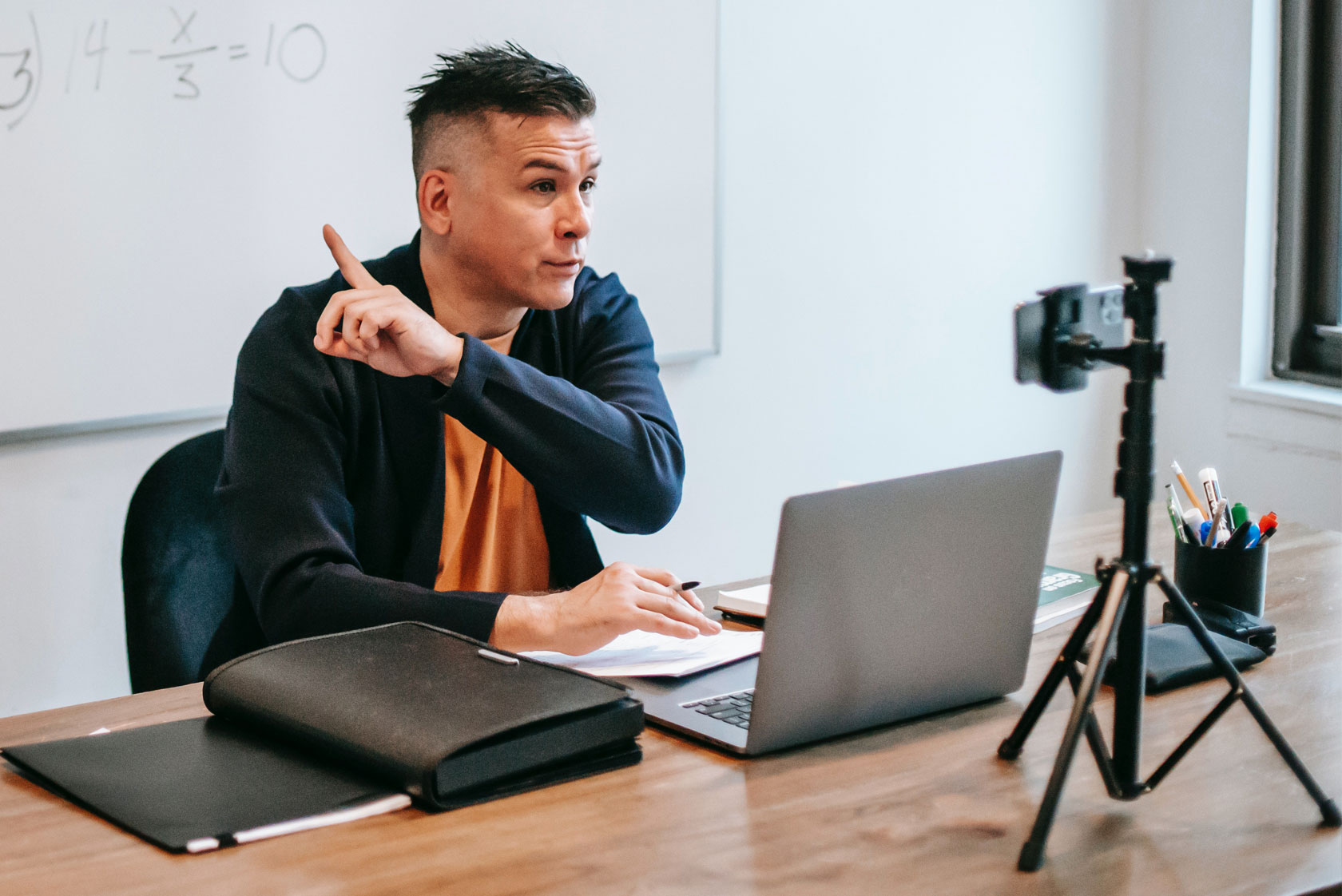
Horizon Report 2021: Focus on Hybrid Learning, Microcredentialing and Quality Online Learning
Rarely has an event impacted higher education as much as the corona pandemic. That's...

